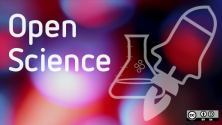Egle Sigler and Dana Bauer will lead coders to work on the OpenStack project while at the Open Source Day codethon at Grace Hopper this year.
 Egle Sigler is a principal architect on Rackspace's OpenStack Private Cloud team and an OpenStack Foundation board member. As part of the board, Egle is co-chair of the DefCore committee and the Diversity Working Group. Egle has co-authored two books, DevOps for VMware Administrators and OpenStack Cloud Computing Cookbook.
Egle Sigler is a principal architect on Rackspace's OpenStack Private Cloud team and an OpenStack Foundation board member. As part of the board, Egle is co-chair of the DefCore committee and the Diversity Working Group. Egle has co-authored two books, DevOps for VMware Administrators and OpenStack Cloud Computing Cookbook.
 Dana Bauer is a geographer and programmer. She works on open data projects at Planet Labs, where she and her colleagues are working to make satellite images of Earth accessible to everyone, including humanitarian groups. Dana is an organizer with the Philadelphia Python User Group and an instructor with Software Carpentry and Girl Develop It.
Dana Bauer is a geographer and programmer. She works on open data projects at Planet Labs, where she and her colleagues are working to make satellite images of Earth accessible to everyone, including humanitarian groups. Dana is an organizer with the Philadelphia Python User Group and an instructor with Software Carpentry and Girl Develop It.

What made you decide to participate in the Grace Hopper Open Source Day codeathon?
Egle Sigler (ES): Dana and I are passionate about making open source communities inclusive and welcoming. The codeathon is a terrific opportunity for us to be tour guides for women of all backgrounds as they explore open source projects like OpenStack.
Dana Bauer (DB): I love the humanitarian focus at Open Source Day. Egle and I are demonstrating how to deploy humanitarian-focused applications on OpenStack, and it's exciting to think that some of those apps could be the first steps toward making a difference in the world.
Have you attended GHC before?
ES: Yes! This will be my third Grace Hopper conference. Two years ago my Rackspace colleagues Iccha Sethi and Anne Gentle ran a successful Open Source Day workshop on how to contribute to OpenStack. Last year, I helped Iccha organize a second OpenStack workshop, and it was a great experience. We had more than 55 participants ranging from college and university students, to professors and teachers, to professionals from various software companies. Our workshop would not have been possible without the help of 14 amazing volunteers who inspired the participants to keep hacking and learning.
DB: This is my first GHC. I can't wait.
Tell us about the open source project you'll have attendees work on at the code-a-thon. What will they learn? And what will the project get out of the code-a-thon?
DB: We're planning to give participants an overview of OpenStack, the open source cloud operating system. Then we'll walk them through how OpenStack can be used to deploy highly scalable applications. We'll have simple apps for folks to deploy and demo at the end of the code-a-thon, including an app that displays a selection of satellite images from Planet Labs. We're also hoping that attendees will come to our session with their own good ideas for humanitarian apps to deploy.
What are your organization's top priorities in the open source community right now?
ES: Currently one of the top priorities for OpenStack is interoperability. Every OpenStack deployment can be customized. However, that also means that different deployments of OpenStack could exhibit different behavior. This does not make for a good user experience. To improve interoperability, DefCore—the committee that sets standards for core OpenStack projects—is working with the community to define the common sets of parameters that every OpenStack cloud should have.
DB: There's also a group within the OpenStack community developing a comprehensive tutorial for writing scalable apps using open source OpenStack SDKs. Their first published guide might be of interest to the folks who participate in our Open Source Day session.
What other open source humanitarian projects is your organization working with?
ES: OpenStack is being used by several international humanitarian and scientific organizations, specifically those focused on climatology modeling, disaster risk reduction, and natural disaster modeling. The company that I work for, Rackspace, supports several open source tech organizations that have a humanitarian focus, including Ushahidi and Public Lab. We support them through our developer event sponsorship program and our discounted OpenStack-based hosting program.
DB: Planet Labs, the company I work for, has a distinct humanitarian focus. We're using space to help life on Earth, primarily by making our high-resolution satellite imagery available to scientists and humanitarian organizations around the world.
How diverse is your project's community?
ES: The OpenStack Foundation is working hard to increase diversity in the community through several programs: the Diversity Working Group; the Women of OpenStack (WOS) group; and the OpenStack Travel Support Program. The OpenStack Foundation is also part of the Outreachy program. Outreachy works with open source communities, like OpenStack, to organize internships for people in groups underrepresented in free and open source software.
Series
This article is part of the Grace Hopper Celebration of Women in Computing series for GHC 2015. The annual Grace Hopper Celebration of Women in Computing is designed to bring the research and career interests of women in computing to the forefront. GHC 2015 will be held October 14-16, 2015, in Houston, Texas.







Comments are closed.